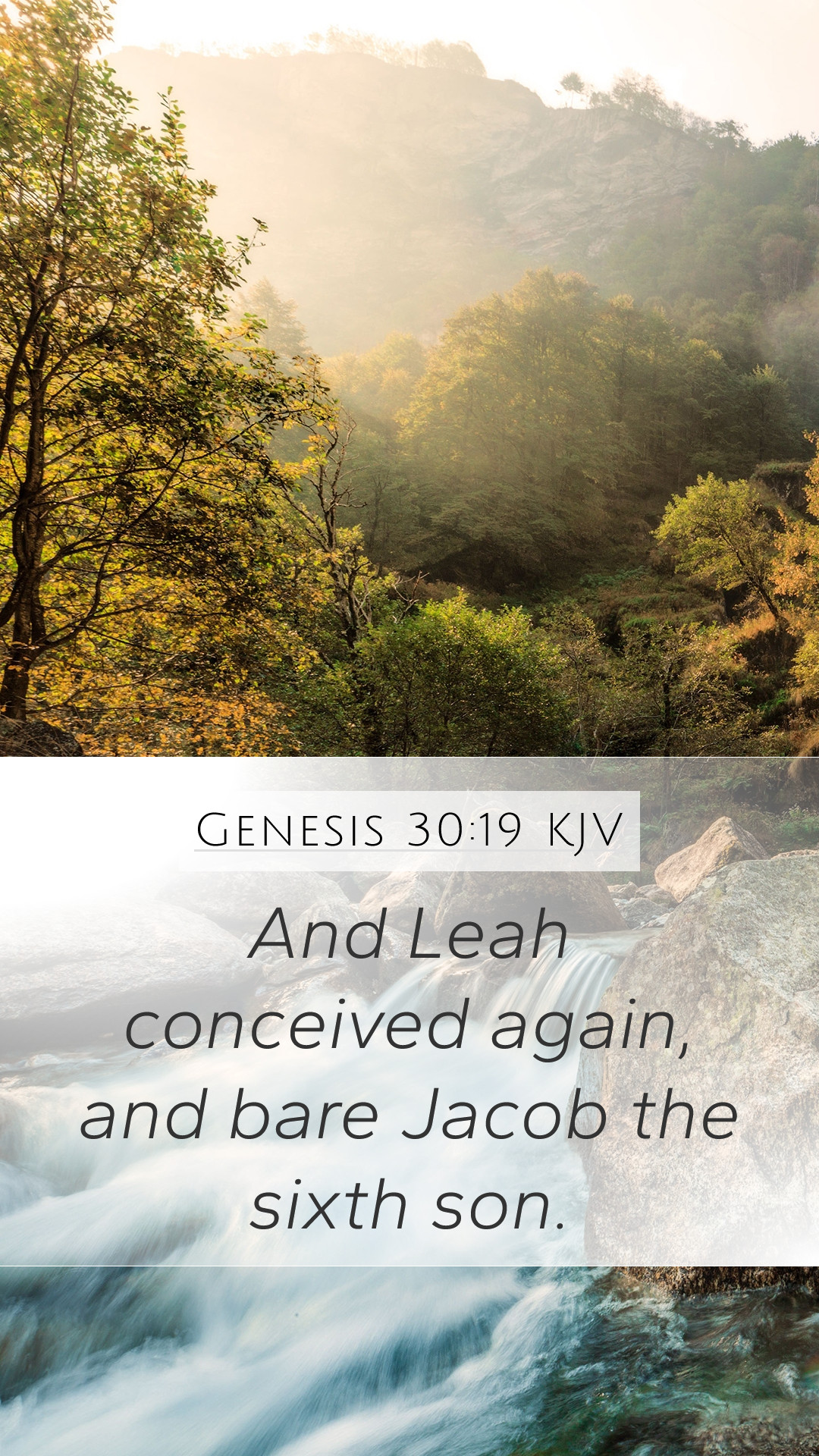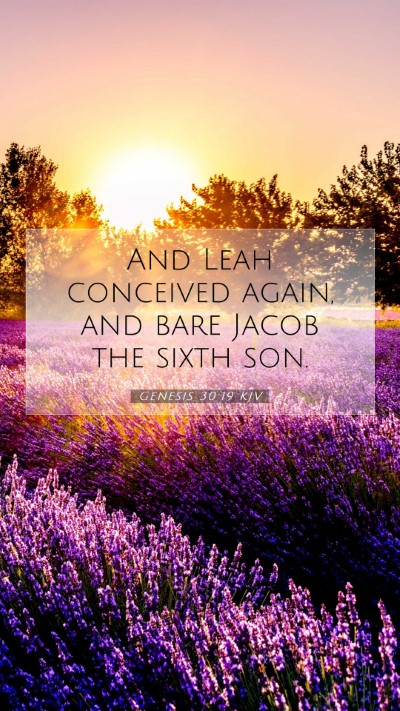Understanding Genesis 30:19
Genesis 30:19 states: "And Leah conceived again, and bare Jacob the sixth son." This verse, situated within the narrative of Jacob's family dynamics, provides rich ground for Bible verse interpretations and insights into the human experience depicted in Scripture.
Contextual Background
In understanding Scripture, it is vital to consider the cultural and historical context of the passage. Leah, the unloved wife of Jacob, is in a competition with her sister Rachel, Jacob's favored wife, concerning childbearing. This rivalry leads to profound implications in their family structure, reflecting the socio-cultural values related to motherhood and status in ancient Israel.
Bible Commentary Insights
-
Matthew Henry's Commentary:
Henry highlights Leah's perseverance in bearing children and suggests that her circumstances lead to a deep spiritual lesson about God's providence. He points out that despite her difficulties, Leah does not lose faith, as each child is seen as a blessing from God. This verse signifies the continuation of God's covenant through Jacob's lineage.
-
Albert Barnes' Notes:
Barnes considers the importance of the enumeration of Jacob's sons, particularly implying that the birth of each son holds symbolic weight in the unfolding narrative of Israel's history. He points out that Leah's sixth son, Zebulun, later becomes significant in the heritage of the tribes of Israel.
-
Adam Clarke's Commentary:
Clarke suggests that the number of sons symbolizes the growth of the family, which would lead to the formation of the twelve tribes of Israel. He also notes the emotional and relational tensions in the household, showcasing the strife that comes with jealousy and competition, thereby allowing readers to reflect on familial relationships.
Biblical Exegesis
Biblical exegesis of this passage reveals significant themes such as jealousy, blessing, and God's engagement in human affairs. The context of Leah's birth narratives serves as a mirror reflecting the struggles and triumphs faced by women in the sphere of ancient patriarchal family structures.
Application in Daily Life
This verse encourages contemporary readers to reflect on the strength and resilience shown by Leah in her turmoil. In a modern context, it can be applied to issues of self-worth, family competition, and the broader theme of God’s faithfulness despite personal challenges.
Cross References
- Genesis 29:32 - Leah gives birth to her first son, Reuben, and reflects on God's goodness.
- Genesis 30:8 - The narrative regarding Leah's servant Zilpah and the competition with Rachel.
- Genesis 49:13 - The prophecy regarding Zebulun, Leah's sixth son, further illustrating the significance of this birth.
Conclusion
Genesis 30:19 is not merely a historical account but a layered Bible verse explanation that invites readers into a deeper understanding of personal struggle and divine providence. This Bible verse meaning encourages exploration within Bible study groups and serves as a critical topic in online Bible study sessions. It stands as a profound reminder of the complex dynamics involved in familial relationships and the overarching narrative of God's plan.


